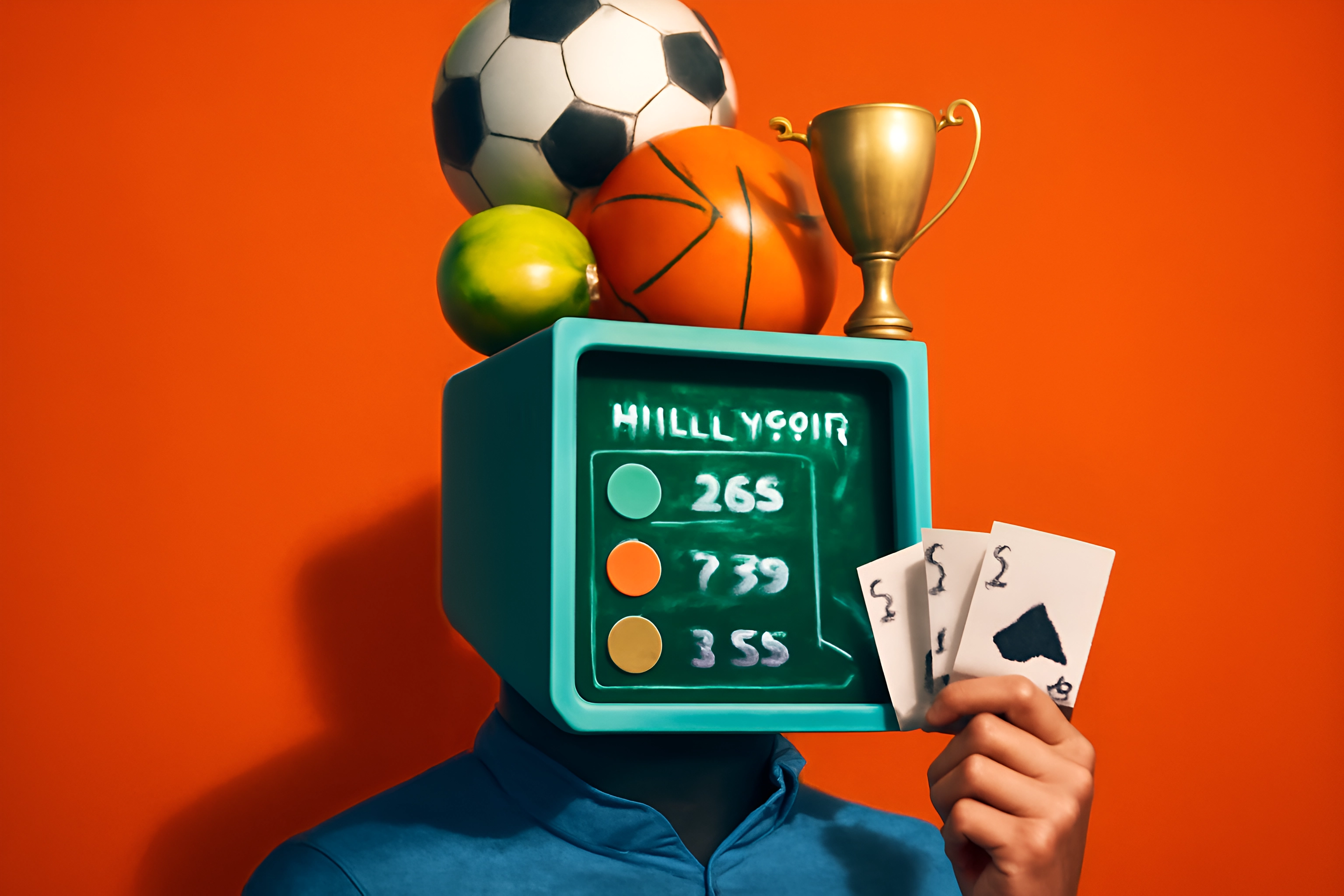
I’ve sat across from countless individuals, from fresh-faced enthusiasts to seasoned players, all pondering the same thing: "Marcus, where should I focus my bankroll for the best strategic returns – the sportsbook or the casino floor?" It’s a fundamental question because, while both arenas offer undeniable excitement, their core mechanics, inherent risk profiles, and the potential for strategic, long-term return on investment (ROI) are worlds apart. One path might appeal to your love of the game and analytical prowess, the other to the thrill of chance and immediate outcomes.
The truth is, both sports betting and casino betting can be part of a broader entertainment budget. However, when we frame them as an "investment," the conversation shifts dramatically. This post is designed to give you an in-depth betting comparison of sports betting vs casino betting, analyzing each as a potential investment strategy. My goal is to help you determine which avenue, or perhaps what combination of the two, truly aligns with your financial goals and your personal betting philosophy. By the end, you'll have much greater clarity on their fundamental differences, a solid understanding of the risk versus reward, and actionable insights to build a more strategic wagering portfolio.
Understanding the Arenas: Defining the "Investment" Landscape
To make an informed decision, we first need to understand the playing fields themselves. Think of it like scouting two different teams before placing a wager; knowing their strengths and weaknesses is key.
A. Sports Betting: The Realm of Analysis and Edge
At its heart, sports betting is the act of wagering on the outcome of sporting events. This could be anything from who wins a football game to how many points a basketball player will score. But from an "investment" perspective, it’s so much more. The core idea here is that skill, diligent research, comprehensive data analysis, and a keen understanding of value can lead to positive expected value (+EV). I’m talking about the ability to identify undervalued teams or lines, where the odds offered by the sportsbook don’t accurately reflect the true probability of an outcome. According to Sportshandle, understanding expected value is crucial for bettors looking to gain an edge[1].
Key elements you'll constantly encounter include the odds (which dictate your potential payout), the vig or juice (the commission the sportsbook takes, often requiring a win rate like 52.4% just to break even on -110 odds as noted by Betsperts[9]), and various types of bets like the moneyline, spread, totals, and proposition bets. Here at SportsBettinger, we're dedicated to helping bettors master these analytical elements. We believe that with the right tools and knowledge, you can move beyond simple fandom and into the realm of strategic wagering, much like how Oddsshopper frames sports betting as an investment, not just gambling[17].
B. Casino Betting: Navigating the House Edge
Casino betting, on the other hand, primarily involves playing games of chance—and sometimes skill—against the "house," which is the casino itself. This includes everything from the flashing lights of slot machines to the felted tables of roulette, blackjack, craps, and poker. When we look at casino games from an "investment" angle, we must first and foremost acknowledge the inherent house advantage. As USBets.com explains, the house edge is a mathematical advantage the casino has on every bet[4], ensuring their long-term profitability.
So, can casino betting be approached strategically? It's a tough question. For most games, the answer leans towards "no" in terms of achieving long-term positive ROI. However, strategic approaches can involve careful game selection (choosing games with a lower house edge), understanding short-term variance, maximizing comps and rewards programs, and applying specific strategies in games where skill plays a more significant role, like blackjack or poker. Key elements here are the house edge (which can range from 0.5% in optimally played blackjack to over 15% in some slots), Return to Player (RTP), and the vast array of game types. For example, Sigma.world notes that perfect basic strategy in blackjack can reduce the house edge to around 0.5%[6].
Head-to-Head: Key Differences for the Strategic Bettor (Betting Comparison)
When you place sports betting and casino betting side-by-side, the differences become stark, especially for those of us looking at it through an investor's lens. Let's break down these core distinctions.
(Marcus's Note: While a table is great for a quick glance, I want to really dig into these points narratively, as that's where the deeper understanding lies.)
A. Skill vs. Chance
This is perhaps the most fundamental difference. Sports betting has a significant skill component. Your ability to handicap games, analyze markets, and process information directly impacts your success. It's about outthinking the market and the bookmaker.
Casino betting, for many of its offerings like slots and roulette, is largely chance-based. The outcome is determined by a random number generator (RNG), and no amount of "strategy" can influence a slot reel's stop or a roulette ball's landing spot. However, there are notable exceptions where skill plays a crucial role, primarily in poker, where you play against other players, not the house, and to a lesser extent in blackjack, where strategies like card counting or perfect basic strategy can tilt odds slightly, as Upswing Poker discusses the skill vs. luck debate in poker[7].
B. Information & Analysis
The hunger for information is insatiable in sports betting. Deep analysis of teams, player statistics, injuries, coaching changes, weather conditions, and even betting market trends is absolutely crucial. The more quality information you can gather and interpret, the better your chances of finding an edge.
In most casino games, the information available for analysis is limited. The rules and odds are fixed and transparently displayed (or should be). There aren't external variables to research for a game of roulette. Poker, again, is the standout exception, requiring deep analysis of opponents, game theory, and situational play.
C. The "Opponent"
In sports betting, your primary "opponent" is the sportsbook, specifically their lines and the vig they charge. You're also, in a sense, competing against the collective wisdom of other bettors, especially in exchange models or when lines move due to public money. Your goal is to find inefficiencies in the lines set by the sportsbook.
When you're at the casino, you are playing directly against the casino's built-in mathematical advantage – the house edge. This edge is designed to ensure the casino profits over the long run, regardless of individual player wins or losses on any given day. As Investopedia highlights, gambling against the house is a scenario where the odds are inherently stacked against you[15].
D. Odds & Payout Structures
Sports betting features dynamic odds. They can change based on new information, betting volume, or even slight adjustments by the oddsmakers. This dynamism creates the potential for finding "value" – betting on odds that are more favorable than the true probability suggests. Payouts are variable based on these odds.
Casino games, for the most part, have fixed odds and payout structures. A bet on red in roulette will always pay 1:1 (if it hits), and a natural blackjack typically pays 3:2. These are set in stone and are integral to maintaining the casino's profit margin.
E. Volatility & Variance
Volatility, or variance, is a big factor in both. In sports betting, variance can be incredibly high. Even the most skilled handicapper with a proven edge will experience long losing streaks. This is the nature of betting on uncertain outcomes. Punter2Pro explains that variance in sports betting means results can deviate significantly from expectation in the short term[8].
Casino game variance differs by game. Blackjack, when played with optimal strategy, tends to have lower volatility. Games like slots, however, are designed for high volatility – long stretches of small losses punctuated by the occasional (often rare) large win.
F. Potential for Long-Term Profitability (The "Edge")
This is the million-dollar question for any aspiring betting investor. In sports betting, long-term profitability is achievable for skilled, disciplined bettors who can consistently identify +EV situations. It's not easy, and it requires immense dedication, but it is possible. Professional bettors often aim for an ROI of 2-5% over a large volume of bets, as suggested by the principles of expected value in sports betting[3].
For casino betting, achieving long-term profitability against the house edge is extremely difficult, bordering on impossible for most games. The math is simply not in your favor. The exceptions are advantage players, such as professional poker players or highly skilled card counters in blackjack (though casinos are very adept at identifying and mitigating the impact of the latter).
Sports Betting as an Investment Strategy: Pros & Cons
If you're leaning towards sports betting as your primary "investment" vehicle, it's crucial to weigh the good against the bad. I've seen many bettors jump in with stars in their eyes, only to be blindsided by the realities.
A. The Upside (Pros)
One of the biggest draws for analytical minds is the intellectual challenge and skill development involved. It’s rewarding to do your homework, find an edge, and see your prediction come true. There's a genuine satisfaction in knowing your analysis paid off.
Furthermore, there's the potential for a sustainable edge. Unlike casino games where the house edge is fixed, sports markets are dynamic. If you can consistently find and exploit market inefficiencies, you can build a long-term profitable strategy. Oddsshopper emphasizes that sports betting can be an investment if approached with discipline and strategy[17].
The sheer diversity of markets is another significant advantage. You can bet on a vast range of sports, leagues, and specific outcomes (props, futures, etc.), allowing you to specialize or diversify. Boothill Casino outlines various types of sports bets available[5], showcasing this diversity. Finally, there's a relative transparency; a wealth of data, statistics, and news is widely available for your analysis, which isn't always the case with the inner workings of some casino game algorithms.
B. The Downside (Cons)
Let's not sugarcoat it; successful sports betting requires a significant time commitment. The research, analysis, line shopping, and continuous learning process can be like a part-time job, or even a full-time one for professionals. If you can't dedicate the hours, achieving an edge will be tough.
Then there's the high variance I mentioned earlier. Even if you have a positive expected value on your bets, you will face losing streaks. These can be mentally taxing and require strict bankroll management, as detailed by Sigma.world, to weather the storms[14].
We also can't forget the vig. The sportsbook's commission is a constant hurdle. You need to win more often than you lose not just to profit, but to even break even. For instance, Betsperts.com points out that with standard -110 juice, you need to win 52.38% of your bets to break even[9]. Lastly, a less talked about but very real con for consistently winning players is the risk of account limitations or even bans from some sportsbooks who are averse to sharp action.
Casino Betting as an Investment Strategy: Pros & Cons
Now, let's turn our attention to the casino. While I generally steer serious investors away from relying on casino games for profit, it's important to understand their appeal and potential pitfalls.
A. The Upside (Pros)
There's no denying the entertainment value and excitement that casino games offer. For many, the thrill of a potential win, the flashing lights, and the social atmosphere provide immediate gratification. This is a perfectly valid reason to engage, as long as it's viewed as an entertainment expense. StreetBetBlog highlights this entertainment factor as a key draw[16].
Many casino games also boast simplicity. Games like slots or roulette are incredibly easy to learn and play, requiring little to no prior knowledge or complex strategy. This accessibility is a major draw for casual players. And, of course, there's the allure of potential for large jackpots, however improbable. The dream of a life-changing win on a slot machine keeps many people coming back, even though the odds are astronomically small.
For those seeking more engagement, there is strategic depth in specific games. As we've discussed, poker stands out as a game of skill against other players, and blackjack, when played with perfect strategy, can significantly reduce the house edge. Finally, comps and rewards programs can offer some value back to players, especially high rollers. These can include free meals, hotel stays, or bonus play, which American Casino Guidebook explains can return 10-40% of theoretical losses as comps[19], though this doesn't negate the overall house advantage.
B. The Downside (Cons)
The most significant con is an undeniable truth: the house always wins (almost). The negative expectation built into most casino games via the house edge means that, over time, the casino is mathematically guaranteed to profit from its players. USBets.com clearly states that the house edge ensures casino profitability[4].
Most casino games are primarily luck-dependent. Beyond basic strategy in games like blackjack, you have very limited control over the outcomes. This lack of agency can be frustrating for those looking to apply skill. There's also the potential for rapid losses, especially in fast-paced, high-house-edge games like slots. It's easy to burn through a budget quickly if you're not careful.
Finally, the casino environment can sometimes encourage emotional decision-making. Chasing losses or getting caught up in the excitement can lead to betting more than intended, making it harder to stick to a predefined strategy or budget. Skrill offers tips for mindful gambling, emphasizing the importance of avoiding chasing losses[18].
Which "Investment Strategy" Wins? Tailoring Your Approach
So, after dissecting both arenas, which strategy comes out on top? As a seasoned strategist, my answer often surprises people: it depends entirely on you and your objectives.
A. For the Analytical, ROI-Focused Bettor
If your primary goal is to achieve long-term positive returns through skill, analysis, and strategic thinking, then sports betting generally offers a more viable path. The ability to research, find value, and develop an edge over the market or sportsbook is a tangible advantage that simply doesn't exist in most casino games. This aligns perfectly with the SportsBettinger ethos: empowering bettors with knowledge and tools.
This path requires immense discipline, meticulous bankroll management as a cornerstone of any serious betting endeavor[14], and a commitment to continuous learning and adaptation. You're essentially becoming a market analyst, specializing in the sports domain. It's not just about picking winners; it's about understanding probability and price, much like how Oddsshopper positions sports betting as a form of investment[17].
B. For Entertainment with Calculated Risk
If your main objective is entertainment, and you view any money wagered as an expense for that enjoyment, then casino betting can fit the bill. The key here is to approach it with a strict budget, a clear understanding of the odds against you, and a focus on games with a lower house edge if you want your entertainment budget to last longer. Or, if you enjoy a strategic challenge within the casino environment, poker stands out.
Poker is a unique beast within the casino because your primary opponents are other players, not the house (which takes a small rake). Here, skill, psychology, and strategy can significantly outweigh luck in the long run, making it a viable pursuit for profit if you have the aptitude and dedication, as Upswing Poker argues regarding the skill component in poker[7].
C. The "Winner" is Personal
Ultimately, there's no single "winner" that applies to everyone. The best "investment strategy" is the one that aligns with your personal goals, your tolerance for risk, the amount of time you're willing to commit, and your analytical aptitude.
If your sole focus is "investment" in the traditional sense – seeking strategic profit through analysis and edge – then sports betting (or professional-level poker) is the clear frontrunner. If you're allocating an "entertainment budget" with the understanding that you're paying for the thrill and any winnings are a bonus, then casino games, played responsibly, can provide that. Many people I know successfully incorporate both, but with very different mindsets and bankrolls for each.
Actionable Tips for Diversifying Your Wagering Portfolio (If Engaging in Both)
For those of you who see merit in both sports betting's strategic depth and the occasional entertainment of casino games, or perhaps want to explore poker, a diversified approach can work. However, it requires even more discipline. Here’s what I always advise:
A. Separate Bankrolls
This is non-negotiable. You absolutely must maintain separate bankrolls for sports betting and casino play. This allows you to accurately track your performance, manage your finances effectively for each distinct activity, and prevent emotional decisions from one area bleeding into the other. Think of it as having different investment accounts for different asset classes. Effective bankroll management is crucial, as detailed by Sigma.world[14].
B. Define Your Goals for Each
Be crystal clear about your objectives. Is your sports betting activity geared towards long-term profit and ROI? Is your casino play purely for entertainment, with a strict loss limit you're comfortable with? Knowing your 'why' for each will guide your decisions and expectations.
C. Understand the Math
Ignorance is not bliss in betting. For casino games, know the house edge of any game you play. For sports betting, dedicate yourself to learning how to identify value, understand implied probability, and calculate expected value (+EV). Covers.com offers a good explanation of expected value in sports betting[3].
D. Specialize Where Possible
Whether it's sports or casino games, becoming an expert in a niche can be advantageous. In sports, this might mean specializing in a particular league, sport, or even a specific type of bet (e.g., player props in the NBA). In the casino, if you're serious about poker, you'll need to specialize in a particular variant (e.g., No-Limit Hold'em cash games or tournaments). BettorEdge discusses the benefits of diversifying and specializing in sports betting[13].
E. Leverage Bonuses & Promotions Wisely
Both sportsbooks and casinos offer bonuses and promotions. While these can provide some initial value, always read and understand the terms and conditions (playthrough requirements, withdrawal restrictions, etc.). Use them strategically to boost your bankroll or reduce risk, but don't let them dictate poor betting decisions. American Casino Guidebook touches on how comps and promotions work[19].
F. Prioritize Responsible Gambling
This applies universally, regardless of where or what you're betting on. Set strict limits on your time and money, know when to walk away, and never, ever chase losses. If you feel your gambling is becoming problematic, seek help immediately. SportsBettinger is committed to responsible play, and resources like those offered by Skrill on mindful gambling provide excellent tips[18].
Conclusion: Making Informed "Investment" Decisions in Betting
We've covered a lot of ground, from the analytical depths of sports betting to the chance-driven allure of many casino games. To recap, sports betting offers a challenging but potentially rewarding path for strategic, analytical individuals to achieve long-term ROI by finding an edge. It demands skill, research, and discipline. Casino betting, by and large, is an entertainment-focused activity with an inherent house advantage, though specific games like poker do allow for significant skill application against other players.
The "investment strategy" theme we've explored today isn't about guaranteeing riches; it's about making informed, calculated decisions. The best strategy is always one that aligns with your personal objectives, your risk profile, and your dedication to analysis and continuous improvement. Whether you're dissecting NFL matchups for value or deciding on a budget for a night at the blackjack table, understanding the underlying principles is key.
I trust that the insights shared in this post will empower you to make more informed choices in your own wagering journey. The world of betting is complex, but with the right approach, it can be navigated strategically.
What are your thoughts? Which do you prefer and why? Share your experiences in the comments below!
Explore our other betting guides, similar to the insights found in Oddsshopper's Betting 101[17], for deeper strategies in sports betting.
Learn more about effective bankroll management from resources like Sigma.world[14] to protect your investments.















